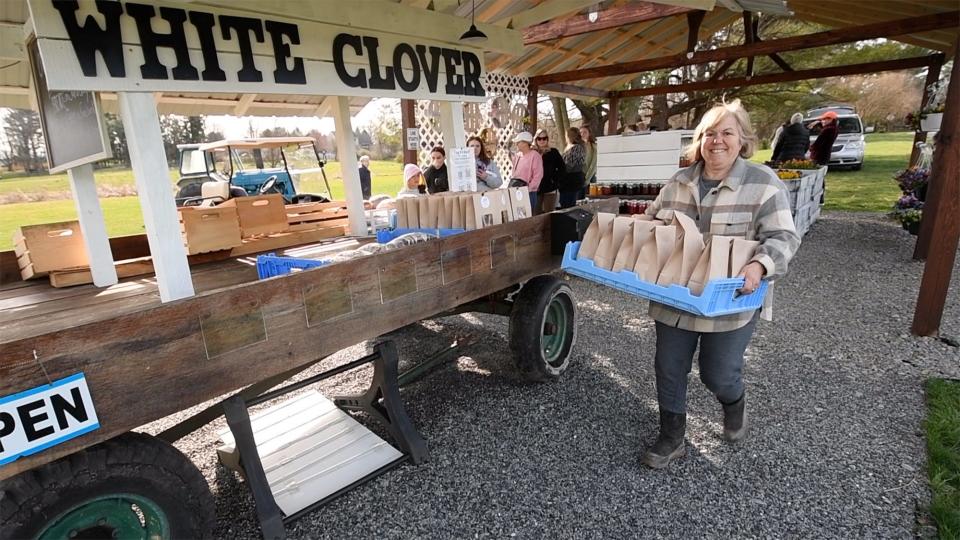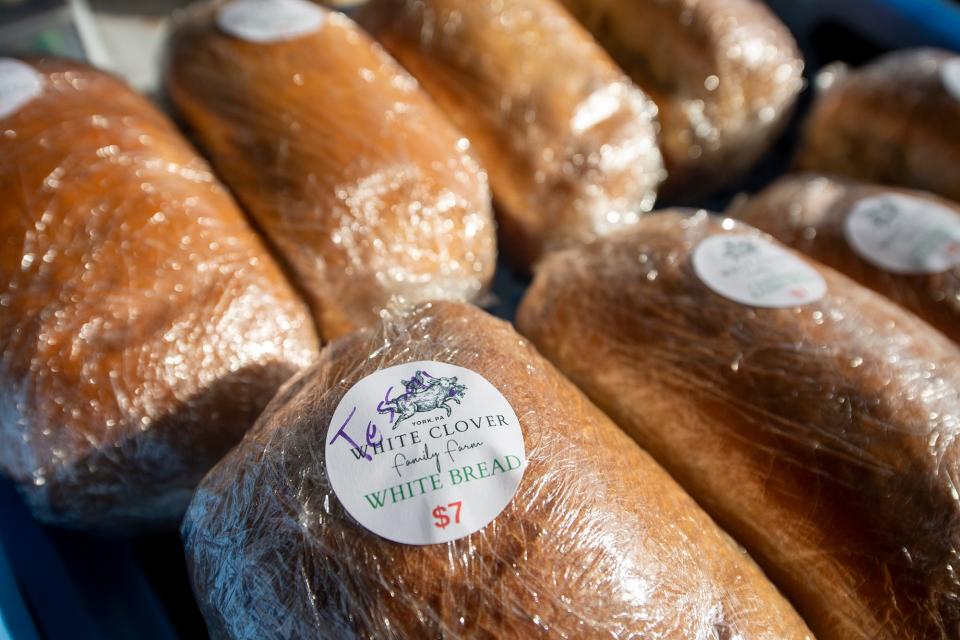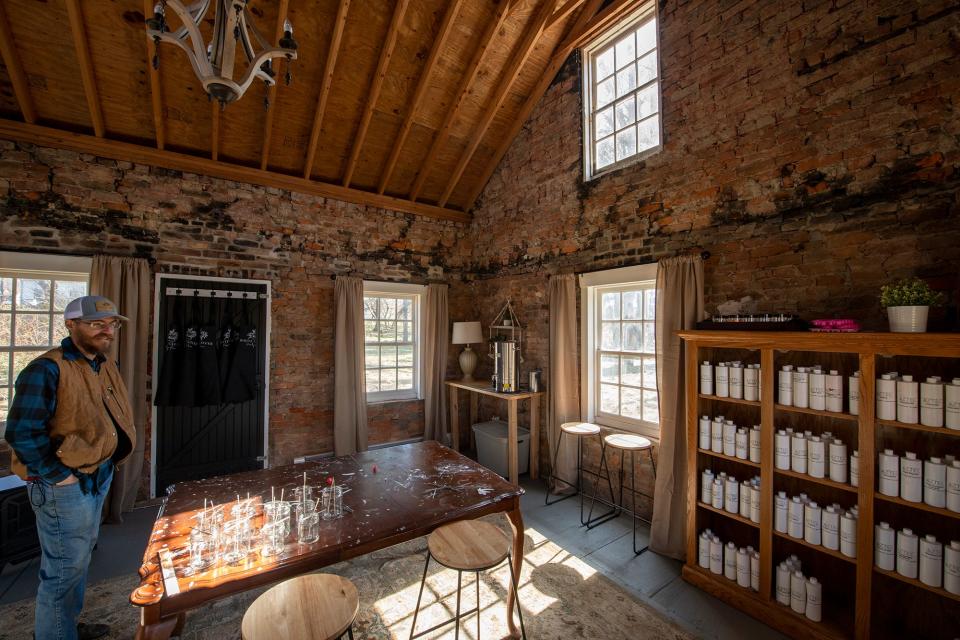White Clover Family Farm born out of the pandemic, supply chain and local food awareness
Seeded in the roots of an 18th century homestead in Hellam Township, White Clover Family Farm has been inspired by the locally sourced food movement and spurred on by supply-chain issues that intensified during the pandemic.
“Without the pandemic, I don’t think this business would exist”, Nate Riedy, who goes by "Farmer Nate" on his social network platforms, said recently after opening the gate to a chicken house for a noisy gaggle of hens tripping over each other to get out for a day of free ranging around the farm.

The family didn’t intend to get into farming before the pandemic. Riedy was working full-time in marketing for the non-profit World Relief.
“The plan (in 2017) was really for my father-in-law to retire and sort of putter around the farm and for all the kids to move back but just to enjoy it ourselves…it didn’t happen until last year that we decided… it morphed into, why don’t we invite other people to enjoy it with us,” Riedy said.
Riedy runs the farm with his parents-in-law John and Linda Holden and his wife, Chelsea. Riedy's children Everly, 6, and Sara, 16, help by baking and taking care of the animals. Sara joined the family through foster care and then adoption in 2020.
The farm, anchored by two historic stone farmhouses, was itself in danger of getting swallowed up by development prior to the 2017 purchase by Riedy's in-laws.
According to the Kreutz Creek Valley Preservation Society, the farm was started with a William Penn land grant. Its two stone houses were built in 1749 and 1765, with each being enlarged in subsequent years.
The farm was most recently owned by Gretchen and Albert Blakey. For 45 years, it continued mostly unchanged, where it was home to horses. When it came time to sell, the Blakey children wanted the farm to remain as open space and for the historic buildings to live on. It was their mother’s dream.
Learn more: 1750s farm sells in Hellam as children honor their mother's dream (2017)
Also of interest:'A once in a lifetime opportunity:' Forest, land to be saved along Susquehanna River
“During the pandemic is what happened,” Riedy described as the trigger for transforming the private family hide-a-way into a community-supported business selling eggs, meat, produce and fresh bread.
“We got our first chickens in March (2020) right when the pandemic began, and then we got our first lambs and then we got our first goats, but we were still not farmers… We were just like accumulating farm animals and starting to grow crops,” Riedy said, describing the conversion phase of becoming farmers.
“Slowly, I fell in love with that - everything we were doing,” Riedy said.

"June of last year, my brother-in-law said 'why don’t you put a little cart down the lane and sell eggs, jams you’ve been making'… I said, I guess I’ll do that on the side…just a little cart, that’s it,” said Riedy, describing the origin of the farm stand.
“And one thing led to another, and by the end of the year we were selling thousands of pumpkins, bushels of sweet corn, hundreds of jars of jam each week, and we built the stand and the pavilion and it turned into a full-time business,” he added.
On March 18, Riedy quit his full-time marketing job to devote all his time to White Clover Family Farm.
He said the reason for the early success of the market is the “crazy community support.”
“Three years ago, no one ever said the words 'supply chain,' now everyone hears and says that word, and they’re thinking about where does my food come from?'" Riedy said food shortages during the pandemic highlighted problems of how food is produced by a consolidated market.
There was a groundswell of support, as they began their operation, on the farm’s social media from the people living in the suburban neighborhoods around the farm. “When I decided to quit my job, I posted a video walking through a field telling them about this, hundreds of people commented (positively).” Riedy said, adding that people are craving authenticity when supporting local business. .

The CEO of the farm, who lets out the chickens and cleans the sheep stalls, said, “We want people to feel like this is not just ours, that they feel they can stop by, that they are part of this. This is their community.”
Julie Myers, one of the first in line before the stand opened on a recent “bread day,” held each Saturday morning, said, “If you're not here in the first five minutes, you’re not getting your bread.” When asked if locally made bread tastes different, she didn’t hesitate with a "yes" and said it's because “it’s made with love.”
For more information about White Clover Family Farm, at 327 Campbell Road, visit their website whitecloveryork.com or their facebook page.
I have captured life through the lens since 1983, and am currently a visual journalist with the USAToday Network. You can reach me at pkuehnel@ydr.com.
This article originally appeared on York Daily Record: White Clover farm stand in Hellam spurred by pandemic, food supply

